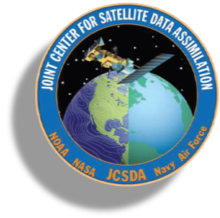On Thursday, January 25, the JCSDA core team and partners from NOAA, NASA, U.S. Navy and Air Force, and the UK Met Office met virtually and in-person to review accomplishments from the last three months and discuss future goals. This quarter saw a lot of functionality added to SkyLab with the release of SkyLab v7, two spack-stack releases, numerous additional sensors, and much more!
JCSDA Announces Seventh Public Release of Skylab
The JCSDA is pleased to announce the release of Skylab 7.0!
JCSDA SkyLab 7.0 is the seventh roll-up release that provides integrated Earth System Data Assimilation capability. All JEDI code is open source and publicly available at https://github.com/JCSDA. Capabilities are demonstrated via the SkyLab testbed experiments conducted internally at JCSDA for the following components
Save the Date for the 2024 JCSDA Technical Review Meeting and Science Workshop
Brief Report on the Status of GEOS-JEDI
The first phase of transitioning the NASA GMAO GEOS atmospheric data assimilation capabilities to JEDI involves the replacement of the Grid-point Statistical Interpolation (GSI) with a corresponding JEDI analysis. This includes taking JEDI's Unified Observation Operator (UFO), its underlying dependencies, and the JEDI solver that enables a hybrid 4DEnVar strategy similar to what is used in the current GEOS-GSI system.
Skylab Releases, Spack-Stack, and Operational Progress Mark a Successful Year For JCSDA
JCSDA Team Makes Big Planning Strides at In-Person Relaunch Week
JCSDA’s 2023 Q2 Review Focuses on Progress Towards Operations
On Thursday, October 26, the JCSDA core team and partners at NOAA, NASA, U.S. Navy and Air Force, and the UK Met Office met virtually and in-person to go over accomplishments from the last three months and discuss future goals. Exciting milestones include two partners passing thresholds for JEDI operations and spack-stack 1.5.0 being officially put into use by UFS!
JCSDA Co-Chairing the International Earth Surface Working Group
On the 26th to the 28th of September, 2023, the International Earth Surface Working Group (IESWG) convened a hybrid meeting with the in-person component at the Finnish Meteorological Institute in Helsinki, Finland. JCSDA’s Dr. Benjamin Ruston co-chaired and facilitated the running of the meeting.
JCSDA Announces Sixth Public Release of Skylab
Spack-Stack 1.5.0: The New Standard
In 2021, JCSDA and NOAA EMC began exploring Spack as an option for creating a single software stack that could be used for both the JEDI DA software environment and the Unified Forecast System (UFS) ecosystem. Since then both teams have combined their efforts to put together a new stack that works with not only JEDI and the UFS, but also with MPAS, NEPTUNE, the Unified Model and soon GEO.











